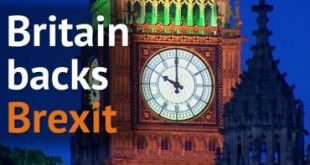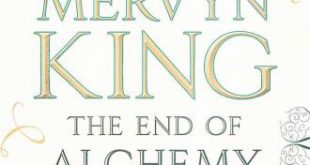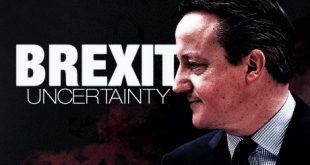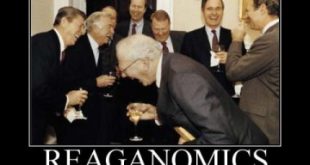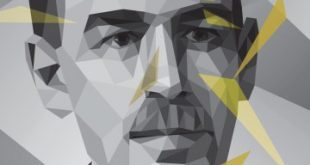Voters of all stripes have recognized the Trans-Pacific Partnership (TPP) as another betrayal of working people, and they have resoundingly rejected it. Despite that, President Obama continues to push it, to the extent of possibly seeking passage in a “lame duck” session of Congress. President Obama’s pushing of the TPP is recklessly irresponsible politics that [...]
Read More »Why Brexit voters ignored the ‘experts’
By the time British citizens went to the polls on June 23 to decide on their country’s continued membership in the European Union, there had been no shortage of advice in favor of remaining. Foreign leaders and moral authorities had voiced unambiguous concern about the consequences of an exit, and economists had overwhelmingly warned that leaving the EU would entail significant economic costs. Yet the warnings were ignored. A pre-referendum YouGov opinion poll tells why:...
Read More »Paul Krugman — nothing but a die-hard neoclassical economist
Paul Krugman — nothing but a die-hard neoclassical economist In his review of Mervyn King’s The End of Alchemy: Money, Banking, and the Future of the Global Economy — on which I had a post up yesterday — Krugman writes: Is this argument right, analytically? I’d like to see King lay out a specific model for his claims, because I suspect that this is exactly the kind of situation in which words alone can create an illusion of logical coherence that dissipates...
Read More »Paul Krugman vs. Mervyn King on Keynes
Paul Krugman vs. Mervyn King on Keynes Most self-described Keynesians are Part 1ers. They don’t necessarily believe that workers and consumers are perfectly rational, or deny that sudden shifts in behavior can happen, but irrationality and volatility are at the fringes of their worldview. King argues, however, that this is all wrong; he is, basically, a Chapter 12er, asserting that economic decisions always take place under conditions of “radical...
Read More »Brexit macroeconomics
I’ve received several thoughtful responses from economists I respect, all making a particular argument about the effects of Brexit-induced uncertainty. It goes like this: right now, firms don’t know how closely Britain will be tied to Europe, so it makes sense for them to postpone investments until the situation clarifies … Doesn’t this argument suggest essentially the same effects from any policy negotiation whose end result isn’t known? Why don’t we say that the...
Read More »The talismanic worship of mathematics in economics
The talismanic worship of mathematics in economics Ultimately, the problem isn’t with worshipping models of the stars, but rather with uncritical worship of the language used to model them, and nowhere is this more prevalent than in economics … Right now … there is widespread bias in favour of using mathematics. The success of math-heavy disciplines such as physics and chemistry has granted mathematical formulas with decisive authoritative force. Lord...
Read More »Why Negative Interest Rate Policy (NIRP) is Ineffective and Dangerous
NIRP is quickly becoming a consensus policy within the economics establishment. This paper argues that consensus is dangerously wrong, resting on flawed theory and flawed policy assessment. Regarding theory, NIRP draws on fallacious pre-Keynesian economic logic that asserts interest rate adjustment can ensure full employment. That fallacious logic has been augmented by ZLB economics which [...]
Read More »Mainstream economics — a pointless waste of time
Mainstream economics — a pointless waste of time Paul Krugman has a piece up on his blog arguing that the ‘discipline of modeling’ is a sine qua non for tackling politically and emotionally charged economic issues: You might say that the way to go about research is to approach issues with a pure heart and mind: seek the truth, and derive any policy conclusions afterwards. But that, I suspect, is rarely how things work. After all, the reason you study an...
Read More »Why people have no faith in economics anymore
Why people have no faith in economics anymore In recent years the public has lost faith the in the economics profession. One reason for the lack of faith is the failure to predict the Great Recession, but the public’s dismissal of macroeconomists is based upon more than the failure to foresee the dangers the housing bubble posed for the economy. It is also due to false promises about the benefits to the working class from globalization, tax cuts for the...
Read More »People who have their heads fuddled with nonsense
People who have their heads fuddled with nonsense The Conservative belief that there is some law of nature which prevents men from being employed, that it is “rash” to employ men, and that it is financially ‘sound’ to maintain a tenth of the population in idleness for an indefinite period, is crazily improbable – the sort of thing which no man could believe who had not had his head fuddled with nonsense for years and years … Our main task, therefore, will...
Read More » Heterodox
Heterodox

